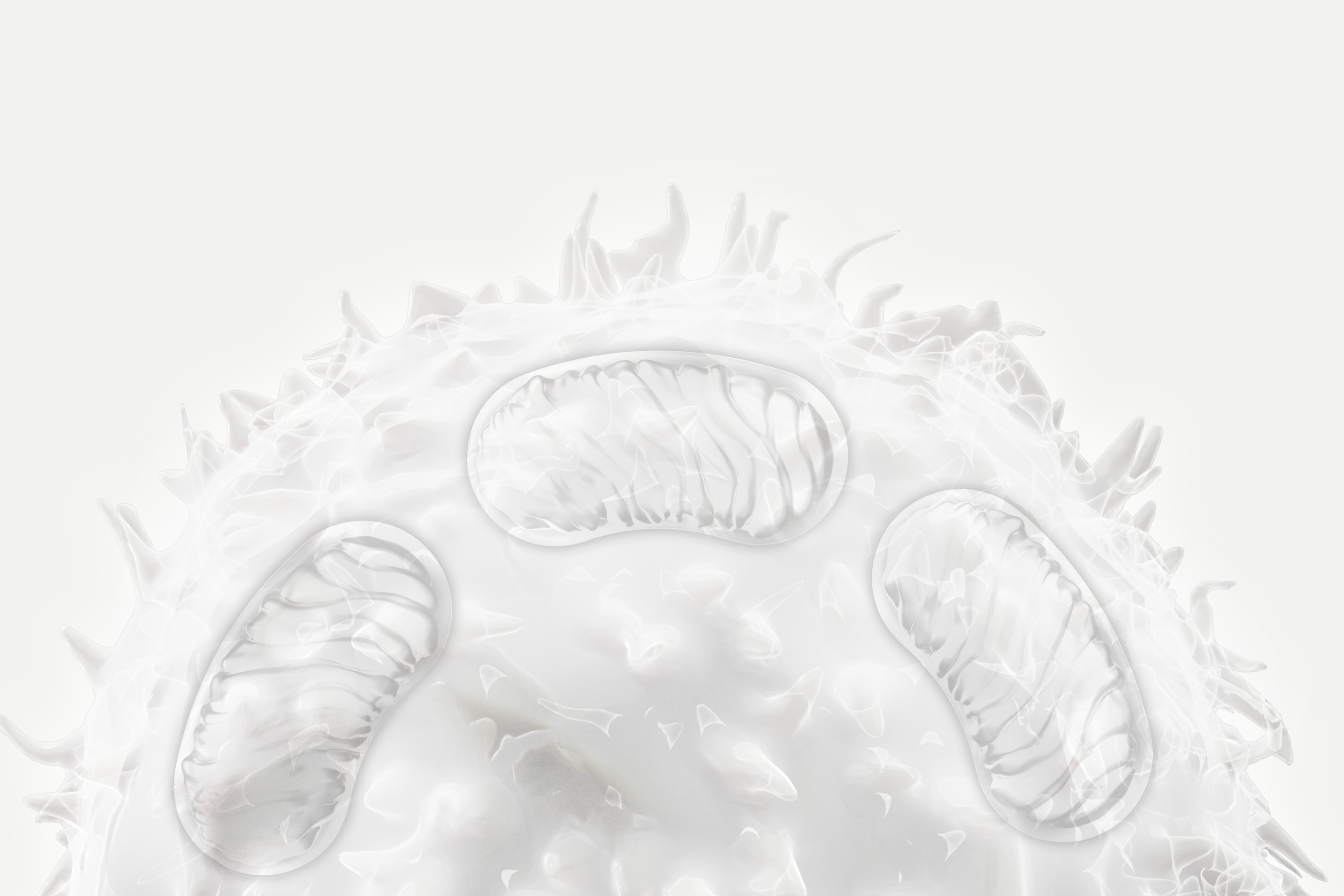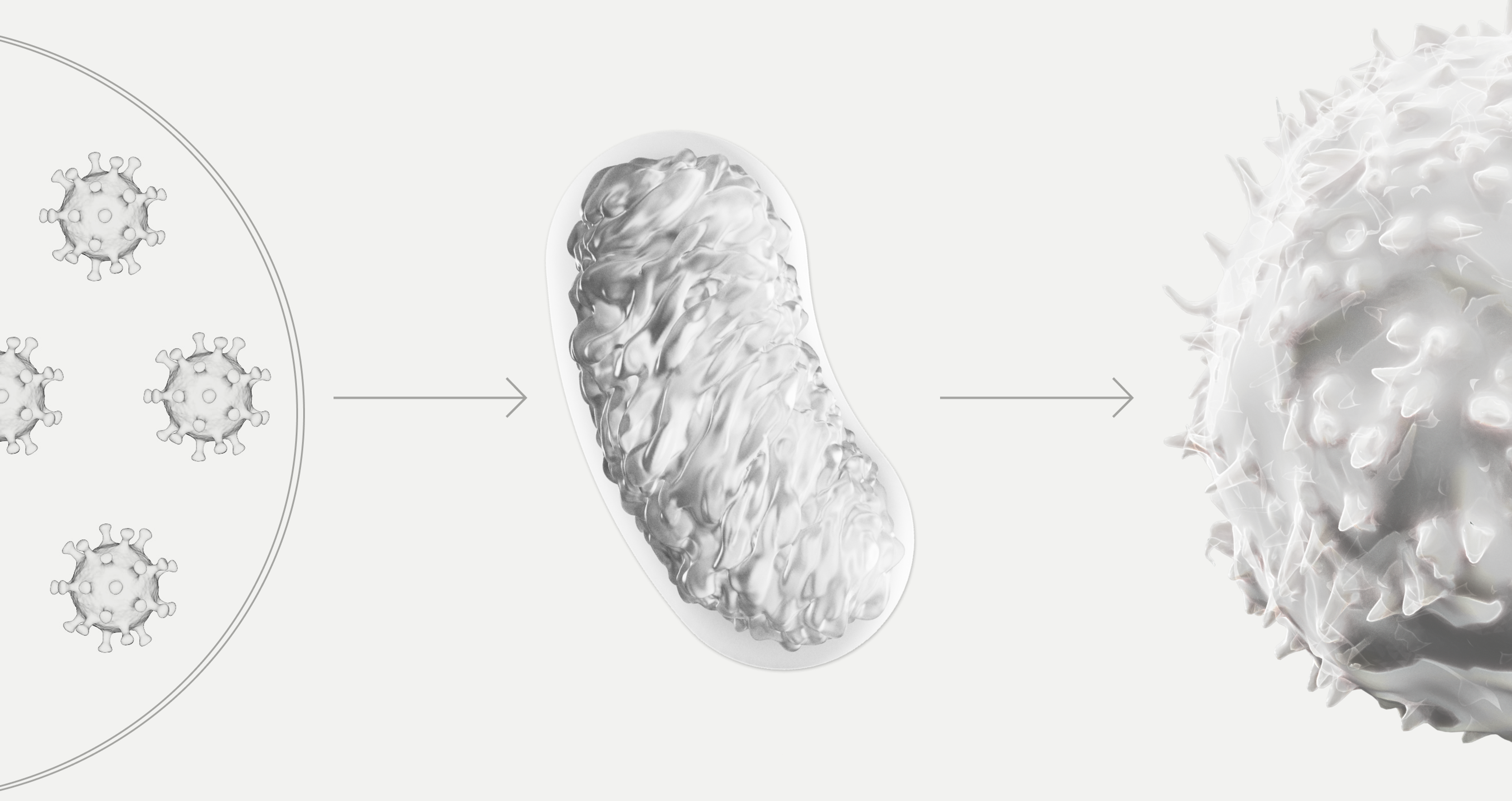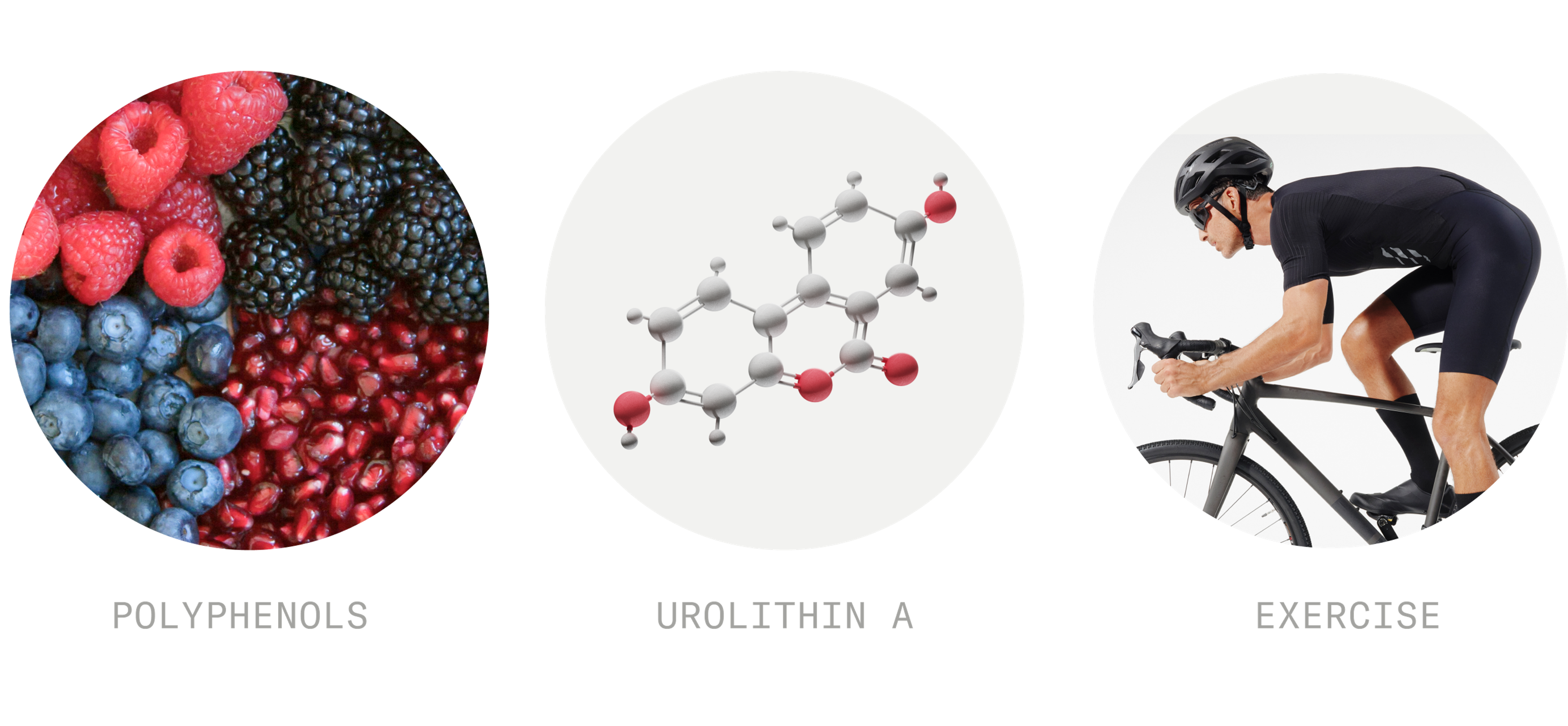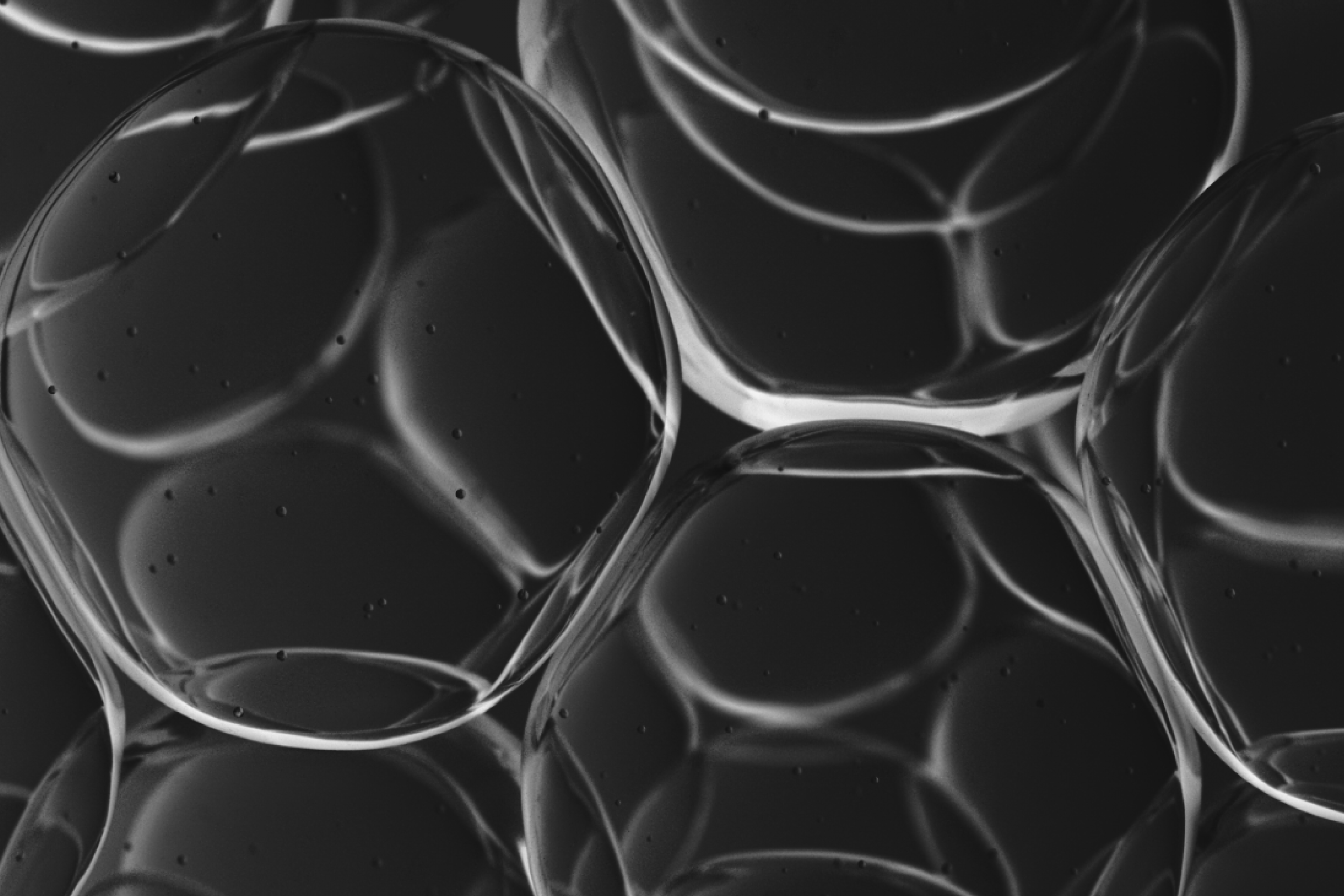Powering the immune system: mitochondria's secret role
Energizing immunity: unveiling the intriguing dance between mitochondrial health and the functioning of the immune system

January 25, 2024
6 min read
Within the microscopic world of our cells, an epic battle unfolds every day, one that holds the key to our body's defenses. Our immune cells fight this battle for us, but they need energy to do so. Our mitochondria play an important role in orchestrating our immune system's response to invaders by providing that much needed energy.
What are the mitochondria?
Mitochondria are termed the “powerhouse” of the cell and produce most of the energy required at the cellular level. They are essential for survival and play an intimate role in almost all aspects of cellular function.[1] The mitochondria have gained attention with regard to healthy aging, as a decline in their functioning has been linked to age-associated disease.[2]

Mitochondrias have an important role in signaling viral infection to the inmune system
How are the mitochondria involved in the immune response?
A healthy immune response delicately balances the activation and inhibition of key signaling pathways. Scientific data suggest that many of these pathways are highly integrated with cellular metabolism, which fuels these fuels active cells.
The mitochondria play a key role in various aspects of immune function and have been found to be critical when it comes to activation of the immune response.[3]
An example of the role of mitochondria in the immune response is in activating the immune response to viruses. The mitochondria are important regulators of the signaling involved in this process. They also activate proteins that are crucial for this function.
Normal mitochondrial function in infected cells is also an important factor influencing the function of autophagy. Autophagy refers to the breakdown and recycling of old or damaged cells and is a powerful tool that cells can use to defend against infection caused by pathogens. This process can initiate the immune response and also degrade parts of the cell that provide the conditions for removing invaders.[4]
What happens when there is mitochondrial dysfunction?
Cell and tissue stress caused by infection from pathogens, disease, aging, or exposure to environmental toxicants promotes mitochondrial dysfunction. This dysfunction leads to a number of changes in the body and triggers inflammation. This, in turn, promotes a state of disease.[5]
One of the reasons for a state of impaired immunity with mitochondrial dysfunction is the increased production of reactive oxygen species (ROS) in the mitochondria. These compounds may cause damage to cells. This leads to an increase in oxidative stress, or an inability to deactivate ROS, which may impair immune function and promote disease.[6]
Another way in which mitochondrial dysfunction is implicated in impaired immune function relates to the decline in the functioning of cells such as T cells. T cells play an important role in the production of antibodies, and T cells from patients with certain diseases show defects, including mitochondrial dysfunction. These mitochondria are not able to produce energy at a normal level.
Mitochondrial dysfunction has been identified as a hallmark of aging and is known to contribute to a state in which cells are unable to multiply, known as cell senescence. [7] The close interaction between mitochondria and the rest of the cell explains why their dysregulation participates in the processes underlying disease.

Is it possible to enhance mitochondrial function?
Improving mitochondrial function has gained attention due to its importance when it comes to not only immune health, but also healthy aging. A number of lifestyle factors have been found to promote improvement in mitochondrial health, and these include dietary strategies and exercise.
One such approach relates to the consumption of a diet high in polyphenols, which are compounds found widely in items such as spices, fruits and vegetables, and red wine, among many others. Research has shown that different antioxidants have the ability to improve mitochondrial function. One of the ways this occurs is through the[8] reduction in oxidative stress.
Compounds produced in the body as a result of consuming polyphenols in the diet have also been of interest with regard to improving mitochondrial function. Urolithin A (UA) is produced in the gut after eating ellagitanins and ellagic acid found in foods like pomegranate, berries, and nuts. UA has been shown to increase mitochondrial function by promoting mitophagy - the cellular removal and renewal of damaged mitochondria.[9]
Along these same lines, UA has gained attention when it comes to enhancing immune function, due to the fact that a healthy immune system depends on healhty mitochondria.[10]
In addition to these approaches related to diet, exercise has also been found to improve mitochondrial health. A body of research has found that exercise improves the ability of the mitochondria to function. [11] One study, for example, demonstrated that resistance training performed over time improved the capacity of the mitochondria in the skeletal muscle.[12]
Final Words
Mitochondria and the immune response are closely related, and mitochondrial dysfunction may promote a state of impaired immunity. Given the importance of mitochondria in so many aspects of cellular health, a focus on enhancing their functioning through lifestyle changes is one way to foster immune health. The role of mitochondria in innate immune responses will continue to be a topic of interest.
References
- ↑
Annesley SJ, Fisher PR. Mitochondria in Health and Disease. Cells. 2019 Jul 5;8(7):680. doi: 10.3390/cells8070680. PMID: 31284394; PMCID: PMC6678092.
- ↑
Kauppila TES, Kauppila JHK, Larsson NG. Mammalian Mitochondria and Aging: An Update. Cell Metab. 2017 Jan 10;25(1):57-71. doi: 10.1016/j.cmet.2016.09.017. Epub 2016 Oct 27. PMID: 28094012.
- ↑
Weinberg SE, Sena LA, Chandel NS. Mitochondria in the regulation of innate and adaptive immunity. Immunity. 2015 Mar 17;42(3):406-17. doi: 10.1016/j.immuni.2015.02.002. PMID: 25786173; PMCID: PMC4365295.
- ↑
Wang S, Zhang K, Yao Y, Li J. Autophagy and Mitochondrial Homeostasis During Infection: A Double-Edged Sword. Front Cell Dev Biol. 2021 Sep 3;9:738932. doi: 10.3389/fcell.2021.738932. PMID: 34540852; PMCID: PMC8448420.
- ↑
West AP. Mitochondrial dysfunction as a trigger of innate immune responses and inflammation. Toxicology. 2017 Nov 1;391:54-63. doi: 10.1016/j.tox.2017.07.016. Epub 2017 Jul 29. PMID: 28765055.
- ↑
Faas MM, de Vos P. Mitochondrial function in immune cells in health and disease. Biochim Biophys Acta Mol Basis Dis. 2020 Oct 1;1866(10):165845. doi: 10.1016/j.bbadis.2020.165845. Epub 2020 May 28. PMID: 32473386.
- ↑
Miwa S, Kashyap S, Chini E, von Zglinicki T. Mitochondrial dysfunction in cell senescence and aging. J Clin Invest. 2022 Jul 1;132(13):e158447. doi: 10.1172/JCI158447. PMID: 35775483; PMCID: PMC9246372.
- ↑
Teixeira J, Chavarria D, Borges F, Wojtczak L, Wieckowski MR, Karkucinska-Wieckowska A, Oliveira PJ. Dietary Polyphenols and Mitochondrial Function: Role in Health and Disease. Curr Med Chem. 2019;26(19):3376-3406. doi: 10.2174/0929867324666170529101810. PMID: 28554320.
- ↑
D'Amico D, Andreux PA, Valdés P, Singh A, Rinsch C, Auwerx J. Impact of the Natural Compound Urolithin A on Health, Disease, and Aging. Trends Mol Med. 2021 Jul;27(7):687-699. doi: 10.1016/j.molmed.2021.04.009. Epub 2021 May 21. PMID: 34030963
- ↑
Toney AM, Fox D, Chaidez V, Ramer-Tait AE, Chung S. Immunomodulatory Role of Urolithin A on Metabolic Diseases. Biomedicines. 2021 Feb 15;9(2):192. doi: 10.3390/biomedicines9020192. PMID: 33671880; PMCID: PMC7918969.
- ↑
Memme JM, Erlich AT, Phukan G, Hood DA. Exercise and mitochondrial health. J Physiol. 2021 Feb;599(3):803-817. doi: 10.1113/JP278853. Epub 2019 Dec 9. PMID: 31674658.
- ↑
Porter C, Reidy PT, Bhattarai N, Sidossis LS, Rasmussen BB. Resistance Exercise Training Alters Mitochondrial Function in Human Skeletal Muscle. Med Sci Sports Exerc. 2015 Sep;47(9):1922-31. doi: 10.1249/MSS.0000000000000605. PMID: 25539479; PMCID: PMC4478283.
Authors
Jinan Banna, PhD, RD
Julie Faitg, Phd
Reviewed by


